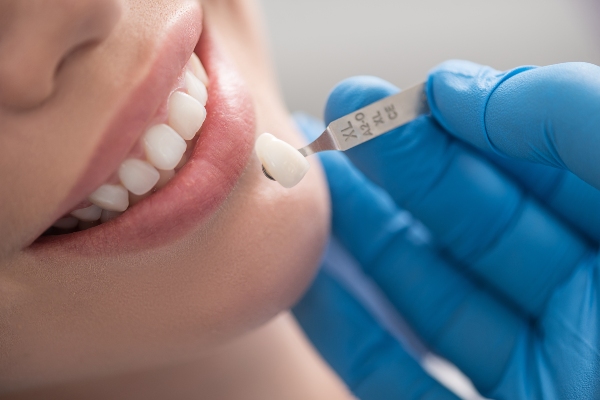Getting Follow Up Care After Dental Implants
 Dental implants offer individuals the opportunity to regain a fully functioning set of teeth. The aftercare procedures are imperative to ensure the surgical area heals and implant osseointegration occurs. Osseointegration is the process by which the bone in the jaw fuses with the implant posts. This creates the solid foundation needed to support the apparatus. Following the dentist’s procedures for at-home care and adhering to a follow-up care schedule are important to the success of implants.
Dental implants offer individuals the opportunity to regain a fully functioning set of teeth. The aftercare procedures are imperative to ensure the surgical area heals and implant osseointegration occurs. Osseointegration is the process by which the bone in the jaw fuses with the implant posts. This creates the solid foundation needed to support the apparatus. Following the dentist’s procedures for at-home care and adhering to a follow-up care schedule are important to the success of implants.
Why is follow-up care required?
The first year following surgery is the most critical time for healing. It can take up to 12 months for the process of osseointegration to occur. It is also the time when the gums are most vulnerable to infection. Implant failure is much more likely to occur during this period than at any time after that first year.
Procedures for follow-up appointments
During follow-up appointments, a dental professional assesses the gums, implants, and surrounding teeth to determine how well the patient is healing and whether there are any signs of complications. The appliance is artificial, but this does not mean that no care is required. Implants have the potential to last a lifetime when proper attention is given. Follow-up care often involves evaluation for the following conditions:
- Evidence of traumatic occlusion
- Signs of tissue inflammation
- Presence of bleeding when tissue is probed
- Indications of infection or presence of pus
- Accumulation of calculus or plaque
Taking an X-ray of the individual’s jaw is a common procedure in post-surgical care. It is possible for the patient to receive more than one over the first year following placement. The imaging allows for examining the condition of the bone, the dental implants, and surrounding anatomical structures.
Assessment in the first six weeks
Often, the first post-placement appointment is scheduled within two weeks of surgery. At this time, soft tissue is assessed for healing progress. Hard tissue, soft tissue, and the implant are examined for signs of infection. Often, a second appointment is scheduled for six weeks after the dental implants are placed. Soft-tissue healing is expected to be complete at this time.
Assessment every three to four months post placement
After the initial follow-up appointments, patients are generally scheduled for follow-up care every three to four months. This involves monitoring the progress of osseointegration as well as oral hygiene status. Procedures are reviewed or altered when necessary. The condition of the patient's implants and overall oral health determine the frequency of recommended follow-ups after the first year.
Assessments of bite force
At each appointment during the first year, dental professionals look for any indication that the patient is biting down on the implant with too much force. An individual who is diagnosed with bruxism may require a mouth guard to prevent damage to or failure of the implant. For others, it is imperative to refrain from using the implant to chew during the healing process.
Conclusion
Dental implants can be a good choice for replacing missing teeth. Ensuring success requires proper oral hygiene and an adherence to post-placement follow-up care.
Request an appointment or call Oro Valley Family Dentistry at 520-833-5261 for an appointment in our Tucson office.
Related Posts
A single missing tooth can present many problems that a dental implant can avoid. A single-tooth implant is designed to replace the root of your tooth. It will work and look like your natural teeth and help prevent complications associated with missing teeth. If you are considering getting an implant, it is important that you…
One of the reasons why dental implants are a popular option for tooth restoration is that they are durable. With the proper care, they can last a lifetime. Maintaining your implants is not much different than caring for natural teeth, but you have to be diligent about dental hygiene to avoid problems that could cause…
One of the reasons why dental implants are a popular option for tooth restoration is that they are durable. With the proper care, they can last a lifetime. Maintaining your implants is not much different than caring for natural teeth, but you have to be diligent about dental hygiene to avoid problems that could cause…


